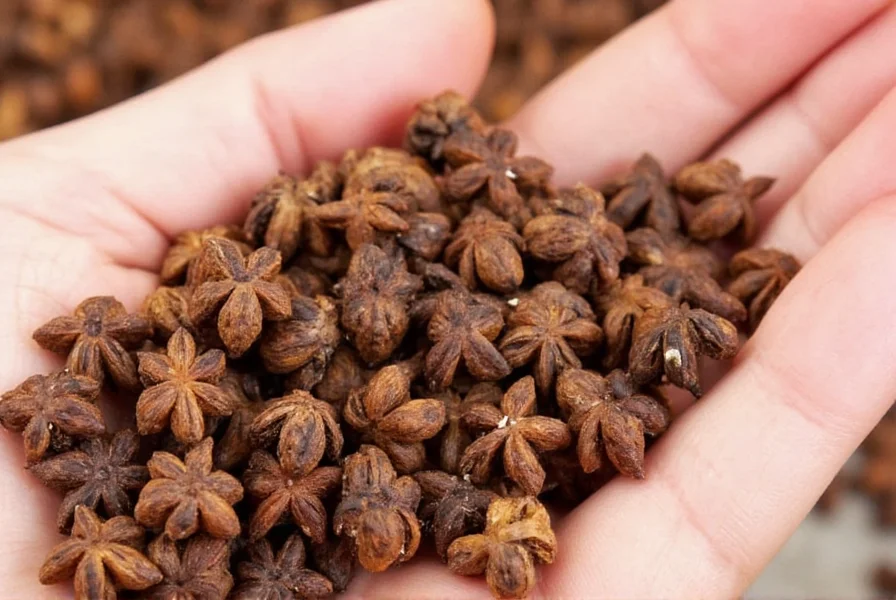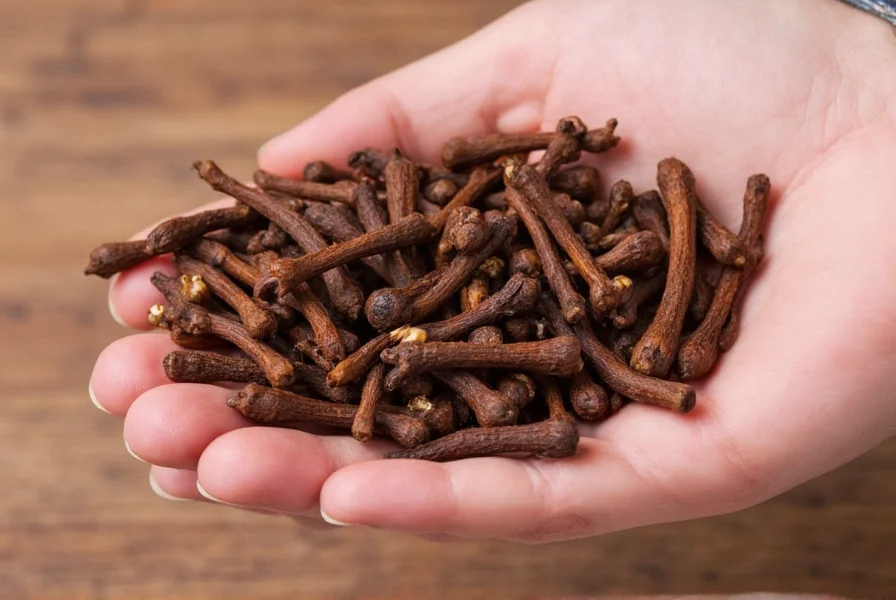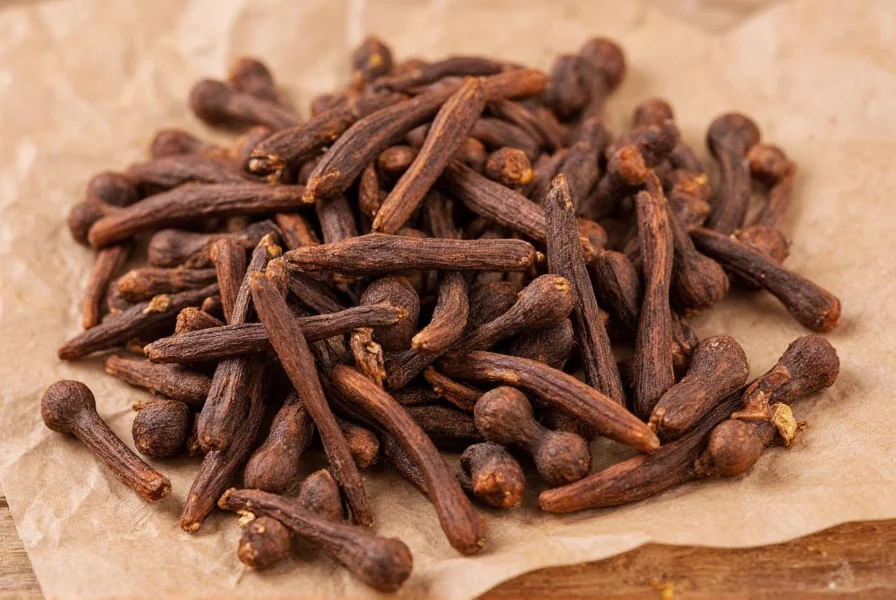For centuries, cloves have been valued not just for their distinctive flavor but for their impressive health profile. This small but mighty spice, derived from the Syzygium aromaticum tree, packs a powerful nutritional punch despite its size. Scientific research reveals that cloves rank among the top spices for antioxidant capacity, even surpassing many fruits and vegetables by weight.
The Science-Backed Health Benefits of Cloves
Cloves contain one of the highest concentrations of antioxidants among common spices. A study published in the Journal of Agricultural and Food Chemistry found cloves have an ORAC (Oxygen Radical Absorbance Capacity) value of 290,283 μmol TE/100g, significantly higher than many superfoods. These antioxidants, primarily eugenol and vitamin C, help combat oxidative stress that contributes to chronic diseases.
When considering are cloves healthy for inflammation, research indicates yes. The eugenol in cloves inhibits inflammatory enzymes like COX-2, similar to how some non-steroidal anti-inflammatory drugs work, but through natural mechanisms. A 2019 clinical trial demonstrated that clove extract reduced inflammatory markers in participants with metabolic syndrome.
Nutritional Profile of Cloves
Understanding the cloves nutritional value per tablespoon helps contextualize their health impact. While used sparingly in cooking, just one teaspoon (2g) of ground cloves provides:
| Nutrient | Amount per Teaspoon (2g) | % Daily Value |
|---|---|---|
| Calories | 6 | 0.3% |
| Manganese | 0.3 mg | 13% |
| Dietary Fiber | 0.7 g | 3% |
| Vitamin K | 3.3 mcg | 3% |
| Eugenol | 140 mg | * |
Manganese supports bone health and metabolism, while vitamin K contributes to blood clotting and bone density. The high manganese content makes cloves particularly valuable for maintaining skeletal health.
Cloves and Dental Health: Evidence-Based Benefits
One of the most well-documented health benefits of cloves for digestion and oral health comes from traditional medicine now validated by science. Dentists have used clove oil for centuries to relieve toothaches, and modern research confirms its effectiveness. A 2016 study in the Journal of Contemporary Dental Practice found that clove gel provided comparable pain relief to benzocaine for dental procedures.
The antimicrobial properties of eugenol make cloves effective against oral pathogens that cause plaque, gingivitis, and bad breath. Unlike commercial mouthwashes that may contain alcohol or artificial ingredients, clove-based remedies offer a natural alternative for can cloves help with toothache concerns.
Digestive Benefits and Blood Sugar Regulation
Cloves stimulate digestive enzyme production, which explains their traditional use in addressing digestive discomfort. Research suggests cloves may help reduce gastric irritation and ulcers by increasing gastric mucus production. For those wondering health benefits of cloves for digestion, studies indicate cloves can accelerate gastric emptying and reduce bloating.
Emerging evidence also points to cloves' potential role in blood sugar management. Animal studies show clove extract improves insulin sensitivity, while human trials are still limited. The compound nigericin in cloves appears to enhance glucose uptake in cells, suggesting potential benefits for metabolic health.
Safety Considerations and Recommended Intake
While cloves offer numerous benefits, understanding how many cloves should you eat daily is crucial for safe consumption. Most health organizations recommend:
- 1-2 whole cloves per day for culinary use
- No more than 2-3 drops of clove oil diluted in carrier oil
- Avoid concentrated clove oil internally without professional guidance
Excessive consumption (more than 2-3 grams daily) may cause:
- Liver toxicity, particularly in children
- Bleeding risks due to anticoagulant properties
- Oral tissue damage from undiluted clove oil
- Low blood sugar when combined with diabetes medication
Individuals with bleeding disorders, scheduled for surgery, or pregnant women should consult healthcare providers before increasing clove consumption. The question is clove oil safe to consume requires special attention—never ingest undiluted clove oil, as it can cause severe mucosal damage.

Culinary Uses for Maximum Health Benefits
To preserve the maximum nutritional value, add ground cloves toward the end of cooking, as heat degrades some beneficial compounds. Whole cloves maintain potency longer and can be removed before serving. Consider these healthy applications:
- Add to oatmeal or smoothies for antioxidant boost
- Infuse in hot water with lemon for digestive tea
- Combine with cinnamon and ginger in spice blends
- Use in marinades for meats to reduce harmful compounds formed during cooking
Cloves Compared to Other Healthy Spices
When evaluating cloves antioxidant properties compared to other spices, cloves consistently rank at the top. Here's how common spices compare based on ORAC values (per 100g):
| Spice | ORAC Value (μmol TE/100g) | Key Active Compounds |
|---|---|---|
| Cloves | 290,283 | Eugenol, vitamin C |
| Oregano | 200,129 | Rosmarinic acid, thymol |
| Cinnamon | 267,536 | Cinnamaldehyde, polyphenols |
| Turmeric | 159,277 | Curcumin, turmerones |
| Ginger | 28,811 | Gingerols, shogaols |
While cloves lead in antioxidant capacity, each spice offers unique health benefits. A diverse spice regimen provides broader protection than relying on any single variety.

Research Limitations and Future Directions
Most clove research comes from test-tube studies or animal models, with limited human clinical trials. The promising results for are cloves good for inflammation need larger human studies for confirmation. Current evidence supports cloves as a beneficial dietary component rather than a treatment for specific conditions.
Researchers are particularly interested in:
- Clove compounds' potential anticancer properties
- Effects on gut microbiome diversity
- Long-term impact on metabolic health markers
- Optimal delivery methods for maximum bioavailability
Until more human data emerges, enjoy cloves as part of a varied, whole-food diet rather than relying on them as a miracle cure.
Practical Recommendations for Daily Use
For most adults seeking the health benefits of cloves without risks:
- Use 1-2 whole cloves daily in cooking or tea
- Store cloves in airtight containers away from light
- Choose whole cloves over pre-ground for maximum freshness
- Combine with black pepper to enhance absorption of beneficial compounds
- Avoid concentrated clove supplements without medical supervision
Remember that cloves side effects and precautions become relevant primarily with excessive consumption or improper use of clove oil. When used appropriately as a culinary spice, cloves pose minimal risk for most people while delivering significant health-promoting compounds.
Frequently Asked Questions
Can eating too many cloves be harmful?
Yes, consuming excessive cloves (more than 2-3 grams daily) can cause liver damage, especially in children. High doses may also increase bleeding risk due to anticoagulant properties and cause mouth or digestive irritation. Stick to culinary amounts (1-2 cloves daily) for safety.
Are cloves good for toothaches?
Yes, cloves provide temporary toothache relief due to eugenol's numbing and antimicrobial properties. Apply one drop of diluted clove oil (mixed with carrier oil) to a cotton ball and place near the affected tooth. However, this only addresses symptoms—consult a dentist for proper treatment of the underlying cause.
How do cloves compare to other spices for antioxidant benefits?
Cloves have the highest antioxidant capacity among common spices, with an ORAC value of 290,283 μmol TE/100g—significantly higher than cinnamon (267,536), oregano (200,129), and turmeric (159,277). This makes cloves exceptionally effective at neutralizing free radicals that contribute to chronic diseases.
Can cloves help regulate blood sugar?
Preliminary research suggests cloves may improve insulin sensitivity and glucose metabolism through compounds like nigericin. Animal studies show promising results, but human clinical trials are limited. While cloves can be part of a blood-sugar-friendly diet, they shouldn't replace medical diabetes management.
What's the best way to store cloves for maximum freshness?
Store whole cloves in an airtight glass container away from light and heat. Properly stored, they maintain potency for 1-2 years. Ground cloves lose flavor and nutrients more quickly—use within 6 months. For longest shelf life, keep cloves in the freezer in a moisture-proof container.











 浙公网安备
33010002000092号
浙公网安备
33010002000092号 浙B2-20120091-4
浙B2-20120091-4